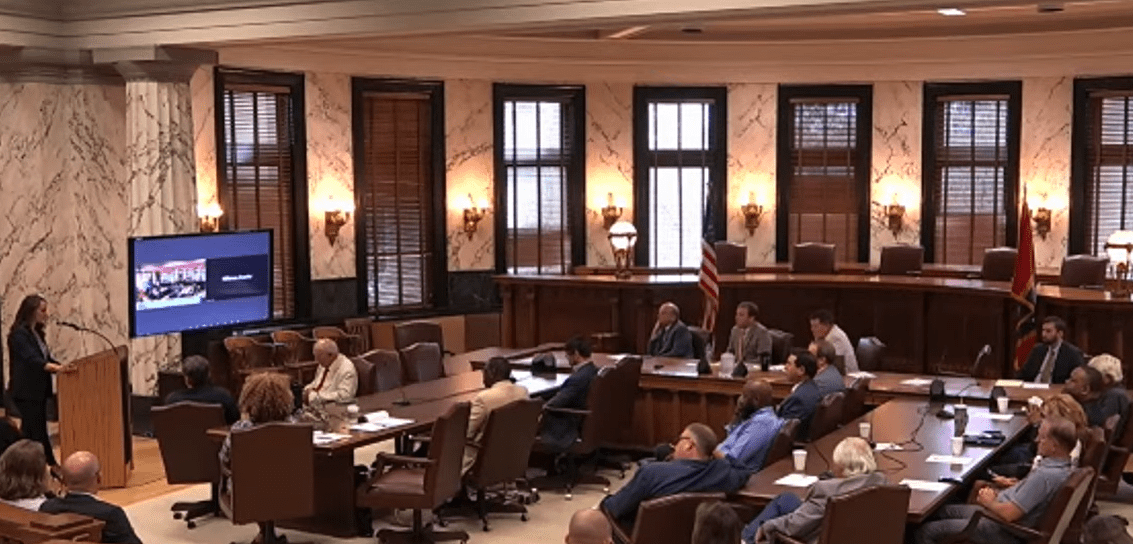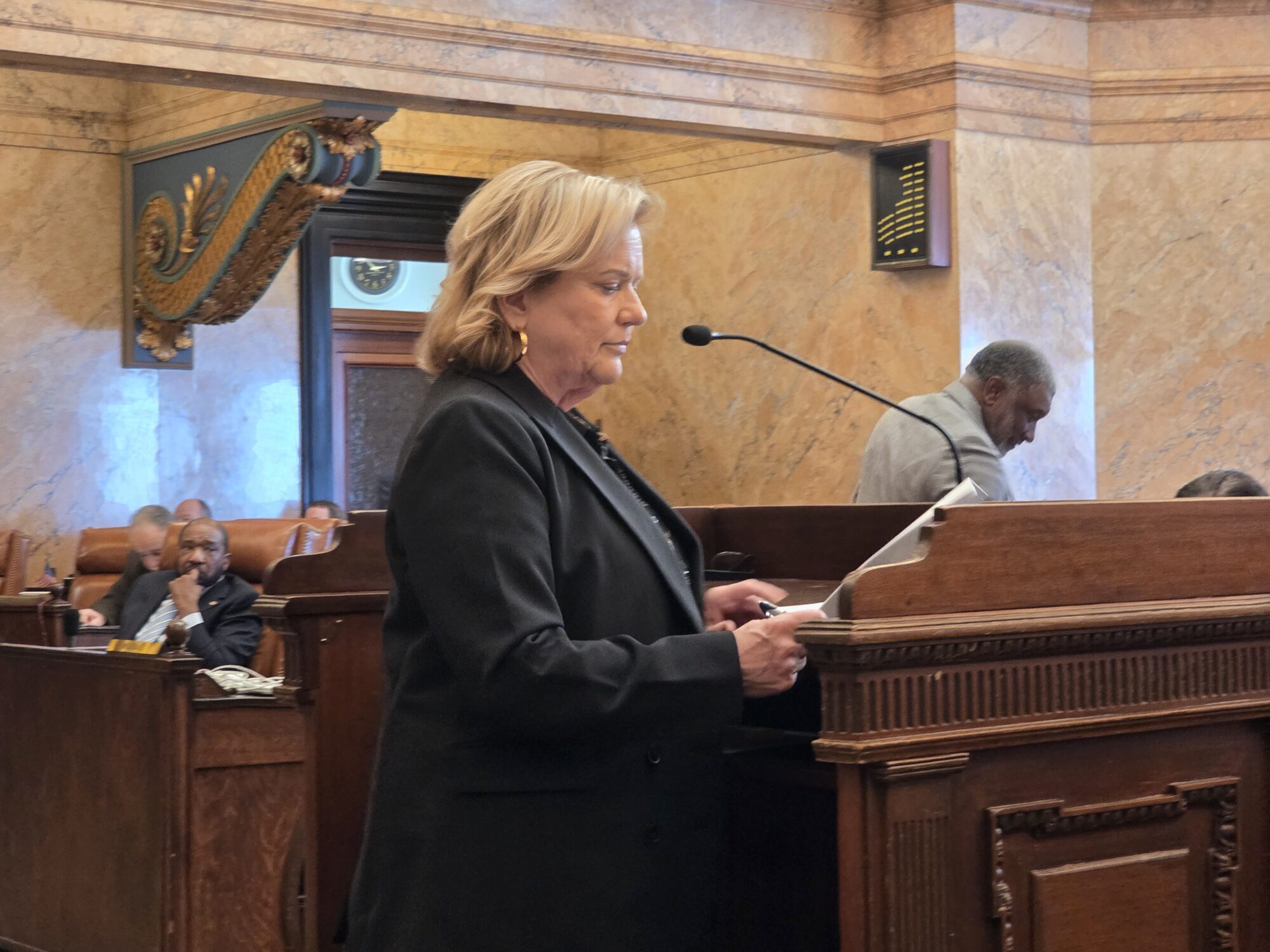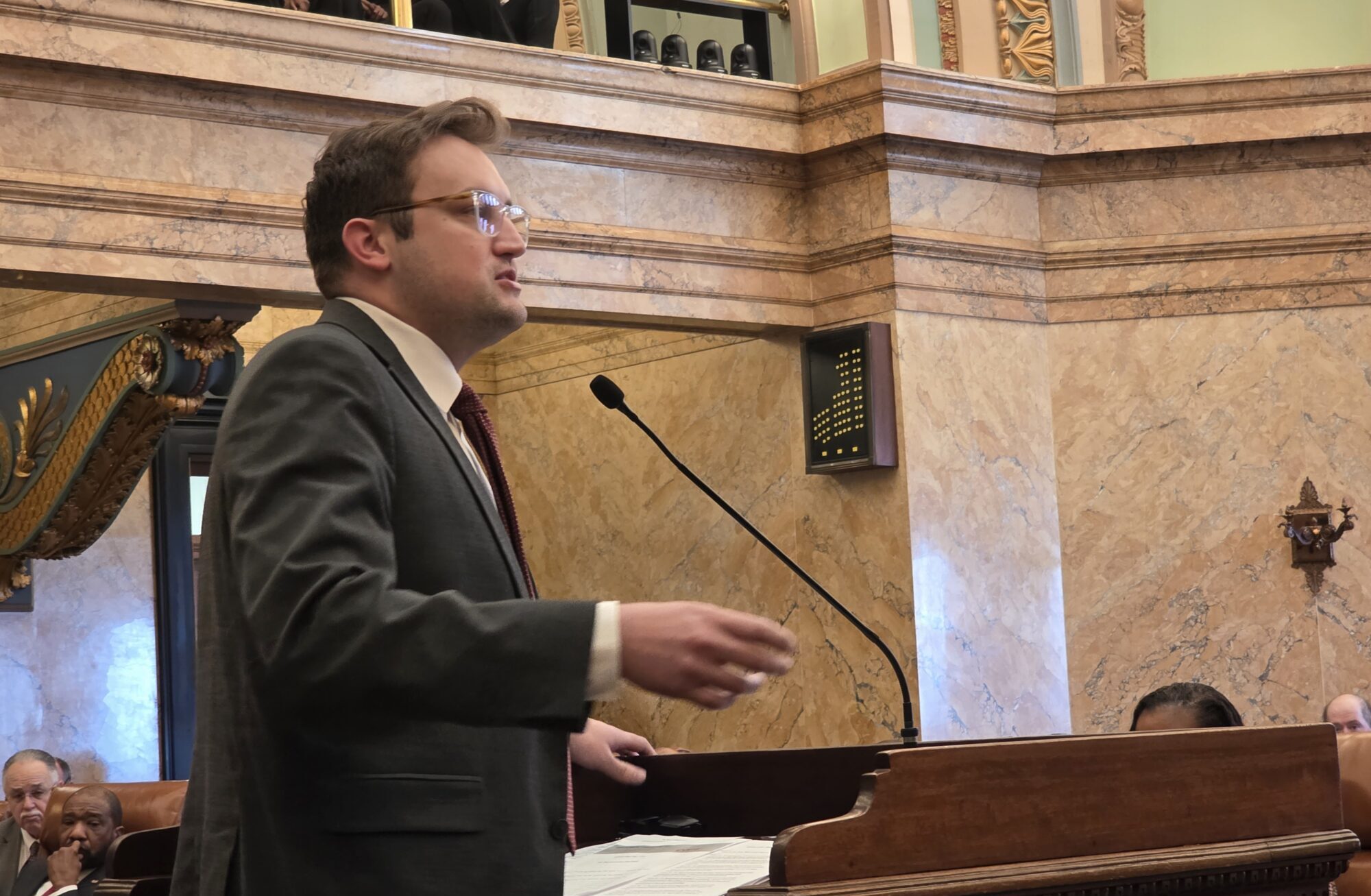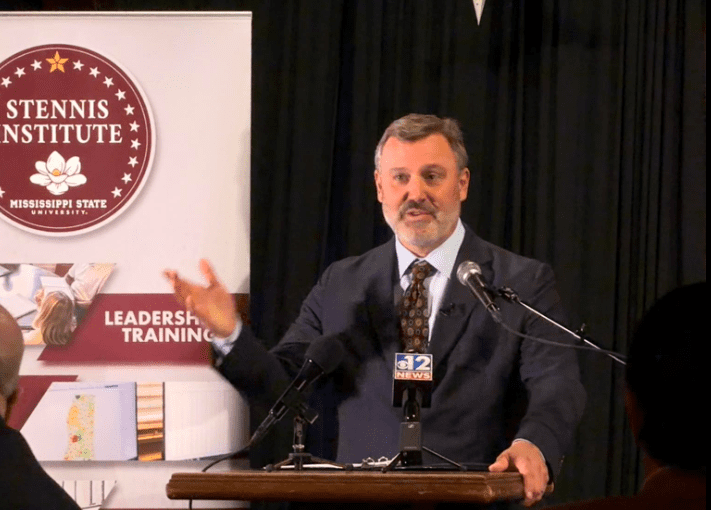
(From Legislature's livestream)
- Testimony provided at a joint hearing Thursday said the drug has shown promise in helping people overcome addiction, PTSD, and brain trauma.
A joint hearing held Thursday at the Mississippi State Capitol allowed lawmakers to assess the benefits and risks of a psychedelic treatment aimed at helping people suffering from trauma. Lawmakers gathered information from experts as they consider potential policy changes in the coming legislative session.
The Public Health Joint Committee hearing on the potential benefits of Ibogaine included information from those who provide the treatment, which has to take place in Mexico due to current laws in the United States, along with testimony from patients who have taken the treatment.
“Let this be the beginning of a serious and honest conversation, not just about Ibogaine, but about how Mississippi can think differently in order to save lives, families and lead with both courage and compassion,” said House Public Health Committee Chair State Rep. Samuel Creekmore (R) at the start of the hearing.
According to Trevor Miller, cofounder of Ambio Life Services, the treatment has been available through his company in Mexico for the last four years. He has been providing the medicine for 15 years in various capacities, starting in Canada until new laws went into effect in 2017.
“You can almost call them miracles that this medicine has accomplished,” Miller described.
Ibogaine is a psychedelic derived from a plant found in Africa. It needs to be provided in a clinical setting to protect the patient. Miller said the word psychedelic means “mind manifesting.”
“They bring about a different level of mind,” Miller said.
Treatment is only found in Mexico due to the substance’s current classification by the FDA as a Schedule I drug, meaning clinical trials are few and far between in the U.S.
“It’s super sad the science was outlawed along with the substances,” Miller said.
The cost of one treatment is upwards of $8,000, but Miller said most people only need one treatment. That fact, he said, reflects that the substance is non-addicting.
Claire Durst, a veteran and nurse who was initially skeptical of the drug, eventually underwent the treatment after seeing how it helped people. She confirmed that patients typically only take one treatment because it is not pleasant.
The process takes 24 to 48 hours and requires prescreening for health conditions prior to treatment. This is done especially to protect the heart.
“It is not fun, but it does come with a deep reset,” Miller said.
In the four years of operating in Mexico, about 2,500 Americans have received the treatment, most of which are veterans or first responders.
While not every case is 100 percent successful, Miller said most patients do see improvement in their lives, and those who do not, admit they were not committed to the process.
Treatments have also shown promise in helping patients dealing with multiple sclerosis as well as a number of other conditions that damage the brain. Miller added that treatment should only be provided to people who are willing and properly informed of the process and the potential side effects, which include headaches and nausea.
Dr. Tom Recore, Medical Director of the Mississippi Department of Mental Health, stopped short of completely supporting the treatment, but agreed that it shows promise. He said that studies ongoing at Stanford University showed that people suffering from PTSD demonstrated an 88 percent reduction in symptoms. In addition, depression symptoms dropped by 87 percent and those dealing with anxiety saw an 81 percent decrease.
Miles Grantham and Ben Bush, two Mississippi veterans who suffered trauma while serving in the military, testified that they both underwent the treatment and both reported improvements not only in their symptoms, but their lives overall.
Both described being in a dreamlike state during the treatment.
“It’s like describing to somebody how peanut butter tastes,” Grantham said. “For me, it’s a life changing experience.”
Bush said he tried several readily available treatments such as antidepressants prior to Ibogaine, but with little success.
“The medication made things severely worse,” Bush described. “I battled that for three years.”
After dealing with employment hurdles, trouble with his marriage and other struggles in life due to his time in the military, Bush heard about Ibogaine from Grantham and decided to investigate the drug.
Through coaching from medical professionals and information gathering, he underwent the treatment. He told the Mississippi lawmakers that it improved the negative aspects of his life.
“That medicine, it humbled me, and it beat me down to where I gave my life to Christ that night,” Bush explained.
After his treatment, he lost the desire to use chewing tobacco and found alcohol had lost its luster.
“I just took on life head-on like a grown-up,” Bush added.
Lawmakers will continue to consider whether legislation allowing FDA trials of the drug should be introduced in the Mississippi Legislature next session.











